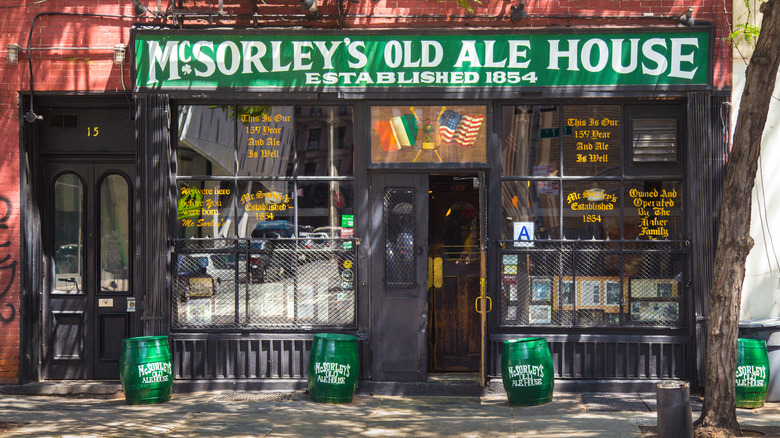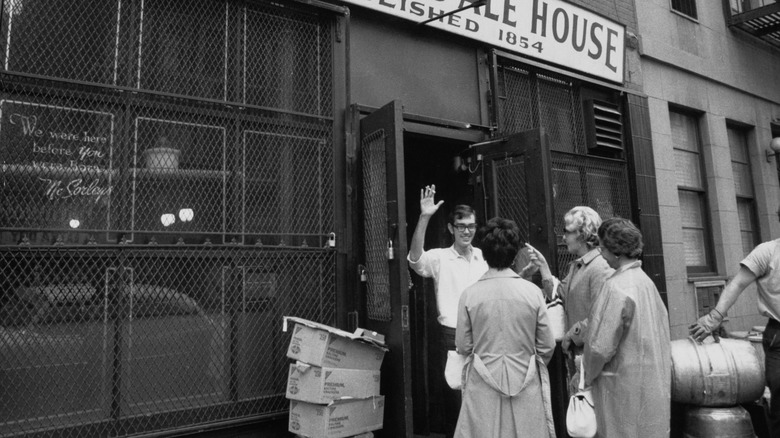The Oldest Ale House In New York City Was Also One Of The Last To Serve Women
Little more than 50 years ago, in August 1970, New York City's mayor at the time signed legislation outlawing gender discrimination in public places. McSorley's Old Ale House had refused to let women through its doors, and it drove the conversation to the courts. The decision finally took down the establishment's former motto promising "Good Ale, No Ladies, and Raw Onions" and allowed women at last to partake of the first and last of these.
McSorley's, established in 1854, is thought to be the oldest continually operated ale house in New York City — a slogan slung across their front window reads "We were here before you were born." It's been visited by presidents, poets, musicians, and even Harry Houdini himself. The bar even managed to continue operating through prohibition, not bothering to become home to a scandalous speakeasy and instead serving a very low-alcohol beer that was considered legal. Today, it only serves two beers (light and dark), and until 1970, it staunchly kept to its hard line of serving only men.
The Civil Rights Act was passed in 1964, but the legislation only prohibited discrimination based on race, religion, color, or national origin in public places, notably excluding discrimination based on sex. This was later added via an executive order in 1967, but enforcement wasn't always reliable. Two attorneys from the National Organization for Women (NOW) brought a lawsuit against the alehouse and raised the issue to the court system, where a federal judge ruled in favor of the women, citing the Equal Protection Clause of the U.S. Constitution. Many bars at this point had already become co-ed, but McSorley's held out until the last possible moment. On the afternoon of August 10, it allowed the first female patron (apart from one female reporter who had been allowed inside in 1952 in order to cover an event), and the reactions from regulars was mixed.
The first evening of a co-ed McSorley's
On the first evening when women were admitted to the bar, several of the first female customers were served without incident — apart from perhaps some booing from male patrons. But according to an article from the New York Times' archives, there was at least one notable fight that broke out. It began with NOW Vice President Lucy Komisar trying to snatch a piece of paper from a man who had shown her the obscene poem, and it ended with the man being kicked out of the bar after dumping a stein of ale on Komisar's head. She then reportedly sat down and drank her own stein of ale, and on her way out she was asked by the bartender if she had had a good time. "Not particularly," she said, according to the archived article. "But politics is not always enjoyable."
Many men expressed displeasure at the idea of a place they had once viewed as a "haven" away from women being disturbed. Other people didn't believe the new rule had changed much, as they didn't think women would like the rough atmosphere of the place. Instead, they believed women were more interested in the mere right to come inside at all. And maybe that was true, to some extent. The act of entering the bar as a woman could be seen as a symbol of knocking down the barriers, like a pub door, that shut women out of certain places and pieces of the world. But women can, of course, also enjoy ale, greasy snacks, and rowdy quality time with friends — and truly, there are some pub foods that everyone should have the chance to try.

